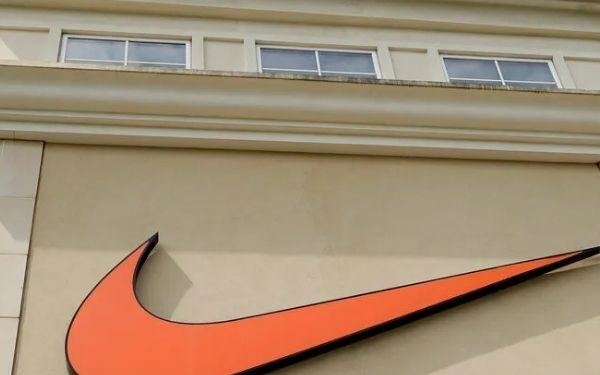PORTLAND, Ore. (KOIN) — Three Nike garment workers from Indonesia have filed a labor complaint in Oregon, accusing the apparel giant of wage theft, hour violations, and discrimination.
In their May 30 complaint, Leni Oktira Sari, Dedhe Nurhasanah, and Dinar Swandi urged Oregon Bureau of Labor and Industries Commissioner Christina Stephenson to “investigate and facilitate the payment of unpaid wages and penalties due to workers on Nike’s supply chain in Asia, including but not limited to wage theft that occurred during COVID-19 as detailed in the Money Heist Report,” referencing findings from the Asia Floor Wage Alliance.
Backed by labor advocacy groups Global Labor Justice, the Asia Floor Wage Alliance, and Portland Jobs with Justice, the three workers are pushing Nike to raise wages and negotiate with their unions for “fundamental labor rights protections.”
The labor organizations outlined Nike’s alleged wage theft in the complaint, stating, “Nike’s response to the COVID-19 pandemic initiated an especially devastating wave of wage theft throughout Nike’s supply chain as the company cut orders and its factories shut their doors or cut wages in response, throwing its workforce – mostly women – and their families into crisis. Already working for wages barely above the poverty line, workers were laid off by the thousands from factories in Nike’s supply chain and faced wage theft at an unprecedented scale, from illegal layoffs and terminations to arbitrary pay cuts, unpaid wages for hours worked, and gender discrimination.”
“Nike’s actions triggered this crisis when it canceled or drastically reduced orders en masse in response to economic uncertainty during the initial months of the COVID-19 pandemic. According to Asia Floor Wage Alliance’s (AFWA) 2022 report Money Heist, which reported findings from its 2020 survey of over 2,000 garment workers, factory workers throughout the industry lost roughly three months’ pay on average during the first year of the pandemic. Five years later, workers, families, and communities that produce products for the global giants are still struggling to recover,” the complaint continues.
The complaint also argues that labor violations in Nike’s supply chain disproportionately impacted women workers.
“Women are disproportionately represented in garment manufacturing, the result of occupational segregation of women workers in a sector with major decent work deficits, resulting in substantive inequality on the basis of gender,” it states.
It adds, “AFWA has documented systemic substantive gender discrimination in garment supply chains during the pandemic, including in factories in Nike’s supply chain. In particular, existing gender discrimination against women garment workers in pay worsened during the pandemic: the Money Heist Report indicates the gender pay gap among respondents increased during the pandemic. Before COVID, the Money Heist Report found that female respondents made 88% of the pay of male respondents; at the end of 2020, respondents made 82% of the pay of male respondents.”
The complaint, filed by the three employees alongside advocacy groups including Global Labor Justice, the Asia Floor Wage Alliance, and Portland Jobs with Justice, asserts that Oregon law should treat Nike as a joint employer of workers in supplier factories.
“Joint employer liability has been fundamental to ensuring garment workers are paid minimum wages and overtime since the 1820s, and U.S. garment workers and their unions won legal precedents that still protect workers today. We appreciate that the Commissioner is considering what role is appropriate for the Commissioner of Labor and Industries of Oregon at this critical moment where U.S. and Oregon corporations are relying on global supply chain based business models,” said Global Labor Justice Executive Director Jennifer Rosenbaum.
The complaint coincides with Sari, Nurhasanah, and Swandi’s leadership roles in the Fight the Heist campaign—a coalition of garment workers and unions across Indonesia, Cambodia, Sri Lanka, Bangladesh, India, and Pakistan—calling on Nike to increase wages and negotiate labor rights protections.
“The Fight the Heist Campaign represents a growing movement from Asia to the U.S. combating massive inequality and the role of ruthless and extractive corporations,” said Abiramy Sivalogananthan, South Asia Coordinator for AFWA. “The workers who make the clothes and shoes sold across the U.S. and the world deserve wages and working conditions with rights and dignity. We appreciate the people in Portland who have joined us to help us build a global economy that works for working people.”
Since the complaint was filed, the Bureau of Labor and Industries is sending Nike a notice of claim outlining the alleged violations and giving the company an opportunity to respond.
“When a global brand like Nike is based in Oregon, our state’s name becomes part of its identity,” said BOLI Commissioner Stephenson. “We can’t turn away from what that success is built on, and we cannot be silent when workers, anywhere, are being exploited. We’re proud to call Oregon home to some of the most iconic companies in the world. That pride also comes with the challenge of making sure those companies live up to the values we share: dignity, equity, and respect for the working people that make them successful. These workers came halfway around the world to tell their stories, and they deserved to be heard.”








